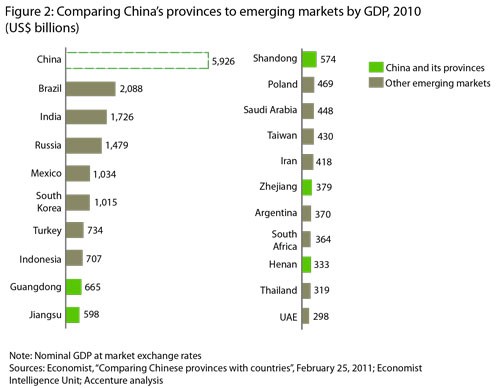Move over China Brazil is largest emerging market
Post on: 9 Апрель, 2015 No Comment

CarlaMozee
SAN FRANCISCO (MarketWatch) — Brazil has moved into pole position among emerging equity markets.
The country is the new home to the world’s largest emerging market as measured by a leading index, and the bulk of the heavy lifting comes from state-run oil giant Petroleo Brasileiro, or Petrobras PBR, -3.84% according to a report released Wednesday by Citigroup.
The recent rise in Petrobras. has been key to the surge in Brazil’s overall weight, said Citigroup analysts Geoffrey Dennis and Jason Press in the report.
The bounce back on the Bovespa, Brazil’s benchmark stock index, over the past month has now erased the index’s losses in January. The losses were brought on by turbulence in global markets as a result of the painful credit crunch and the slowdown in economic growth, among a host of other financial uncertainties.
Bovespa’s recent gains have been enough to outperform the MSCI Global Emerging Market index and bring Brazil’s weighting to 14.95% of the index. That surpasses China’s weight of 14.15% and Korea’s contribution of 13.69%.
In 2002, Brazil accounted for just 5.3% of the index. The MSCI Global Emerging Market index is a market capitalization-weighted index of more than 850 stocks traded in 22 world markets.
Rounding out the top 10 emerging markets by weight are Taiwan, Russia, India, South Africa, Mexico, Malaysia, and Israel.
Brazil is also now the 10th largest market in the world, as measured by the MSCI All Country World index, with a free float market capitalization of $509.1 billion.
The U.S. market is the largest, coming in with a free float market cap of $12.57 trillion.
Brazil’s position as the top emerging market isn’t guaranteed to last since market caps ebb and flow, which is why one analyst said investors should included factors such as economic fundamentals and regulatory issues as part of an evaluation of potential investments.
It’s a horse race, said Rob Lutts, chief investment officer at Cabot Money Management. But more important for investors is how careful is (corporate) management and the country taking care of shareholder value. Every emerging-market country has a cross to bear. In China, it’s their issue of a lack of personal freedom for individuals. In Brazil, I think there are still issues of government stability.
The Bovespa has climbed 10% in February, turning around a 6.9% loss last month. The index is up 2.5% year to date, and finished 44% higher in 2007.
The advances stem largely from the preferred shares of Petrobras, which have the heaviest weighting on the Bovespa. The stock is up 6.6% in February, after a bleak 9% decline in January. They finished 77.5% higher in 2007.
Petrobras is now the biggest emerging-market company by market capitalization, which recently stood at $253.02 billion. Citigroup cited Petrobras’ significant oil discovery in the Tupi field offshore from Brazil and the jump in crude-oil futures to record highs above $100 a barrel as reasons for the gains in Petrobras’ shares.
Gazprom OGZPY, -3.38% (OGZD), Russia’s state-controlled energy firm, and Vale RIO, -1.83% a Brazilian mining firm, are the second- and third-largest companies in the emerging markets, respectively. Right behind them is China Mobile Ltd. CHL, -0.31% China’s and the world’s largest cellular-services provider.
Can it last? asked Citigroup about Brazil’s market advance. Yes on a long-term basis, it said.
Short term, however, we see Brazil as ignoring risks of any sort (earnings downgrades and hikes in domestic interest rates); we view Brazil as overbought, expensive and overdue a pause.
Brazil’s surge comes as China’s key Shanghai Composite Index is in the middle of a pullback, down 18% after rocketing 96.7% higher last year.
After a market has a rip-roaring performance, it needs to works off the excesses, said Lutts. Every six to 18 months, these markets that are growing 20% to 50% a year, are going to have significant corrections.
Lutts said investors should consider having 20% of their growth funds comprise of emerging markets because they make up about 20% of world GDP. The average investor has less than 5% to 7% of the growth portion of their portfolios in emerging markets.
Lutts suggested investors who are not willing to directly pour money into markets outside of the U.S. to look at the iShares MSCI Emerging Markets ETF EEM, -1.21% which tracks the performance of the MSCI Emerging Markets index.
It gives you great exposure to all of them, he said.














